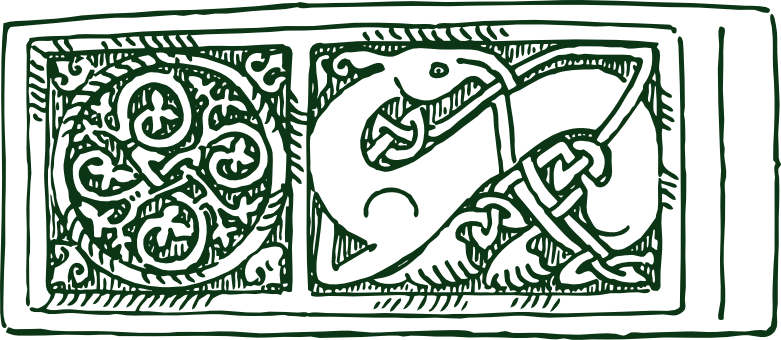David Dutton
The speaker for the 2018–19 evening, when one of the members of Dumfriesshire and Galloway Natural History and Antiquarian Society takes the floor, was academic historian, David Dutton. He chose to retire to Dumfries, where he has made his mark with his wide knowledge of modern history.
David said that the 1930s was a much-denigrated decade and represented an era of appeasement and chronic depression. British democracy was not at risk, compared to the situation on the continent of Europe where far-right politics were a serious threat. British democracy was never seriously threatened. Although the British Union of Fascists (BUF) failed to have any member elected to Parliament, that is not the best way to assess their strength.
Martin Pugh’s publication of 2005, Hurrah for the Blackshirts, suggested that fascist ideas permeated right-of-centre politics far more extensively than previously thought. It is best to see fascism as part of a political spectrum, rather than a self-contained entity. Fascism at its height in Britain tapped into a widespread feeling that parliamentary democracy was a failing political model, unable to cope with post-World War 1 problems.
British Members of Parliament of all persuasions in the 1920s and early 1930s failed to inspire. Many in Britain admired the model presented by Mussolini, who came to power in Italy in 1922, and in the early 1930s he enjoyed a short favourable phase. Winston Churchill even had a grudging regard for Mussolini because at that time the Italian leader wasn’t racist or anti-semitic.
The first mass rally north of the border in Britain was held in the Drill Hall (now Loreburn Hall), Dumfries, on Friday 6 April 1934. The speaker was Oswald Mosley, a handsome man and leader of the BUF. More than 3,000 people attended; yet on the night before opposing elements broke into the hall and cut cables; emergency repairs had to be carried out. Extreme right-wing politics lead to a counter-reaction from the extreme left. There were some interruptions and a little violence occurred.
However, the crowds were largely enthusiastic because Mosley was a powerful orator. He held the platform for two and a half hours. In the front row sat eminent citizens like Cecil Dudgeon, MP for Galloway, 1922–24 and 1929–31, and Dr Joseph Hunter, the local MP, who even took Mosley to view the sights of Dumfries. Press coverage, while critical on some counts, presented a balanced and fair judgement of Mosley’s performance. The D&G Standard expressed surprise at seeing several hundred blackshirts in the audience. Dictatorship by consent was the message. Britain might again be great. He knew how to excite a crowd and received a wonderful ovation.
From a 21st-Century standpoint we might well ask why did this, the first major meeting of the BUF in Scotland, take place in Dumfries! Why not Edinburgh or Glasgow! After all Mosley had had strong links with Glasgow — but as a Labour MP. (When he did appear later on Glasgow Green to campaign for the new party he was attacked with severe physical abuse as a Labour renegade.)
The answer lies in the fact that the most successful branch of the BUF in Scotland was based in Dalbeattie, the cradle of ‘the new faith’ with the largest branch office, from which meetings were organised in South-West Scotland. There were 400 BUF members in Dumfriesshire. Much of that success was attributable to James Little, bank manager and town clerk, who softened the public image. Besides, funds were distributed to local good causes. Little, being so able, became fascist organiser for Scotland.
Sadly, for the BUF in Britain the ‘honeymoon’ period was coming to an end. At a meeting in Olympia in June 1934 it was already evident that Mosley was losing respectable middle-class support. The change was demonstrated in Dumfries when Mosley’s mother came to the town to present the branch colours, which had been ordered at the zenith of local popularity. It was even more pronounced when Irish-American William Joyce, later Lord Haw-Haw, who had teamed up with Mosley, came to the town to speak in February 1935. An audience of about 50 turned up and the speech was not reported favourably. The BUF was already a spent force in Scotland by the time of the outbreak of war in 1939.
Fascism in Britain rapidly declined, developing into blackshirt brutal thuggery, racism and anti-semitism for control of heckling and rejection of BUF pronouncements. Communist devotees encouraged counter-demonstrations as Mosley in one year toured the country and delivered 200 speeches, designed to appeal to a conservative populace. Joyce left the BUF in 1937.
Post-war Mosley attempted, but largely failed, to resurrect his political career. He was banned from the BBC and was interned in 1940. Joyce achieved notoriety for his war-time ‘Lord Haw-Haw’ propaganda broadcasts from Germany and was executed for high treason. Nevertheless, briefly in the mid-1930s Scotland stood out as a fascist success story.
Throughout David Dutton’s excellent, illustrated talk, laced with witty asides, parallels with the current UK political situation emerged.
M.W.
